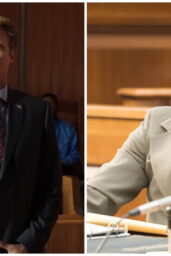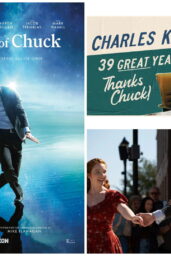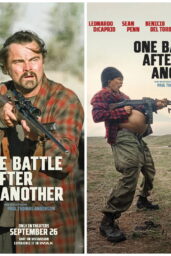What happens when the real danger isn't the KGB—it's your own convictions?
Vera Farmiga is stepping into Billion Dollar Spy, Walden Media's Cold War thriller starring Russell Crowe and Harry Lawtey. But here's what sets this project apart from your average espionage drama: it's not just about spycraft. It's about impact. At home. Behind closed doors.
Farmiga plays Natasha Tolkachev, wife of Adolf Tolkachev (Crowe), a Soviet engineer who secretly passed classified intel to the CIA—risking his life in the process. The story is based on David E. Hoffman's acclaimed book, a real-life tale that sidesteps glamour and zeroes in on the cost of resistance.
A marriage under surveillance—literally and metaphorically
Most spy films show what's on the line: secrets, alliances, nations. Billion Dollar Spy shows who's on the line. And Natasha Tolkachev, portrayed by Farmiga, is the person who lives in the gray space—where complicity, loyalty, and survival blur.
This isn't Farmiga's first time stepping into a world on the edge. From The Departed to The Conjuring series, she's built a career on characters who bear psychological weight without telegraphing it. Here, she may be doing it in the most subtle and significant way yet.
Here's what makes this casting matter
The story, as told in Hoffman's book, is brutal in its realism. Tolkachev wasn't a trained agent—he was a man disillusioned with the Soviet regime. His decision to become a CIA source wasn't driven by ideology. It was personal. He felt betrayed, and he fought back in the only way he could.
But that fight didn't happen in a vacuum. It played out in the living room. In whispered conversations. In risks that Natasha either supported—or couldn't stop.
By casting Farmiga, director Amma Asante (BAFTA-winner for A United Kingdom) signals that Natasha isn't just set dressing. She's central. She's the person whose silent presence will shape how audiences interpret Tolkachev's actions.
Spy thrillers have a new target: emotional truth
This isn't a first for the genre. A Most Wanted Man (2014) and Tinker Tailor Soldier Spy (2011) both peeled back the human cost of espionage. But where those stories kept their personal lives mostly in the background, Billion Dollar Spy seems poised to bring them forward—without sacrificing tension.
Gaghan's script (following a draft by Ben August) and Asante's direction suggest a deliberate pivot away from action-heavy formulas. No car chases. Just high-stakes decisions, made quietly, and carried home like a second skin.
Would you recognize betrayal if it looked like patriotism?
That's the question Billion Dollar Spy wants you to sit with. And Vera Farmiga might be the one who makes you feel it—without saying a word.












